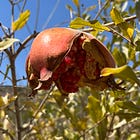How Health Beats Disease
It's not only about killing pathogens and suppressing symptoms.
Dear Healthy Jew,
Last week we learned from one of Judaism’s greatest thinkers, Rabbi Moshe Chaim Luzzato (1710-c.1746), how health is the completion of barebones, incomplete life - not merely the lack of any apparent sickness.
This perspective of health and sickness might sound surprising and confusing. We’re used to equating life with health, and regard disease as an outside being or force that attacks life.
Perhaps we think this way because modern medicine has identified many biological causes for illness: bacteria, viruses, parasites, tumors. If most things that go wrong with our bodies are intruders – even cancer is the proliferation of cells that shouldn’t be hanging around – one would think that normal life comes together with health.
Although understandable, this view misses the broader picture of health and illness. The symptoms of disease aren’t the essence of sickness. After all, not everyone exposed to pathogens falls ill. And everyone has hordes of cancerous cells in their body. Does this mean that everyone is unhealthy, but most are currently asymptomatic?
Of course not. Healthy life ably defends itself from invaders, both from outside and within. Modern medicine will credit the immune system, other cultures a constellation of forces arising from both body and spirit, but whatever the terminology, the idea is the same: health is the completion of life that transcends sickness.
This is why in Mishnaic Hebrew the word used for health, brius, means strength (see Eruvin 1:4). Strength implies the power to fend off adversity, just like health means the ability to overcome sickness.
And so ends our reflections about the beginnings of health in this beginning of the Jewish year.
May the entire world know this year only peace, wholeness of life, and joy. May the terrible wars grind to a halt. May the healing begin.
Thank you for reading Healthy Jew.
Here are 2 great paths to continue the journey:
Also check out this intro and index to explore hundreds of posts about our 3 Healthy Jew topics: Wellness with Wisdom, Land of Life (Israel), and Sensible Spirituality.
Finally, always feel free to reach out here with any comments, questions, or complaints:
I look forward to hearing from you!
Be well,
Rabbi Shmuel Chaim Naiman








